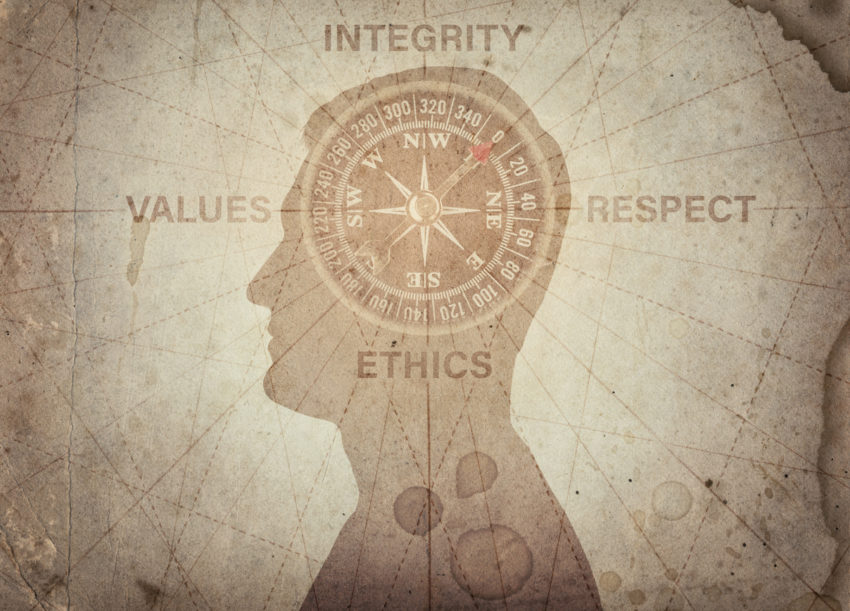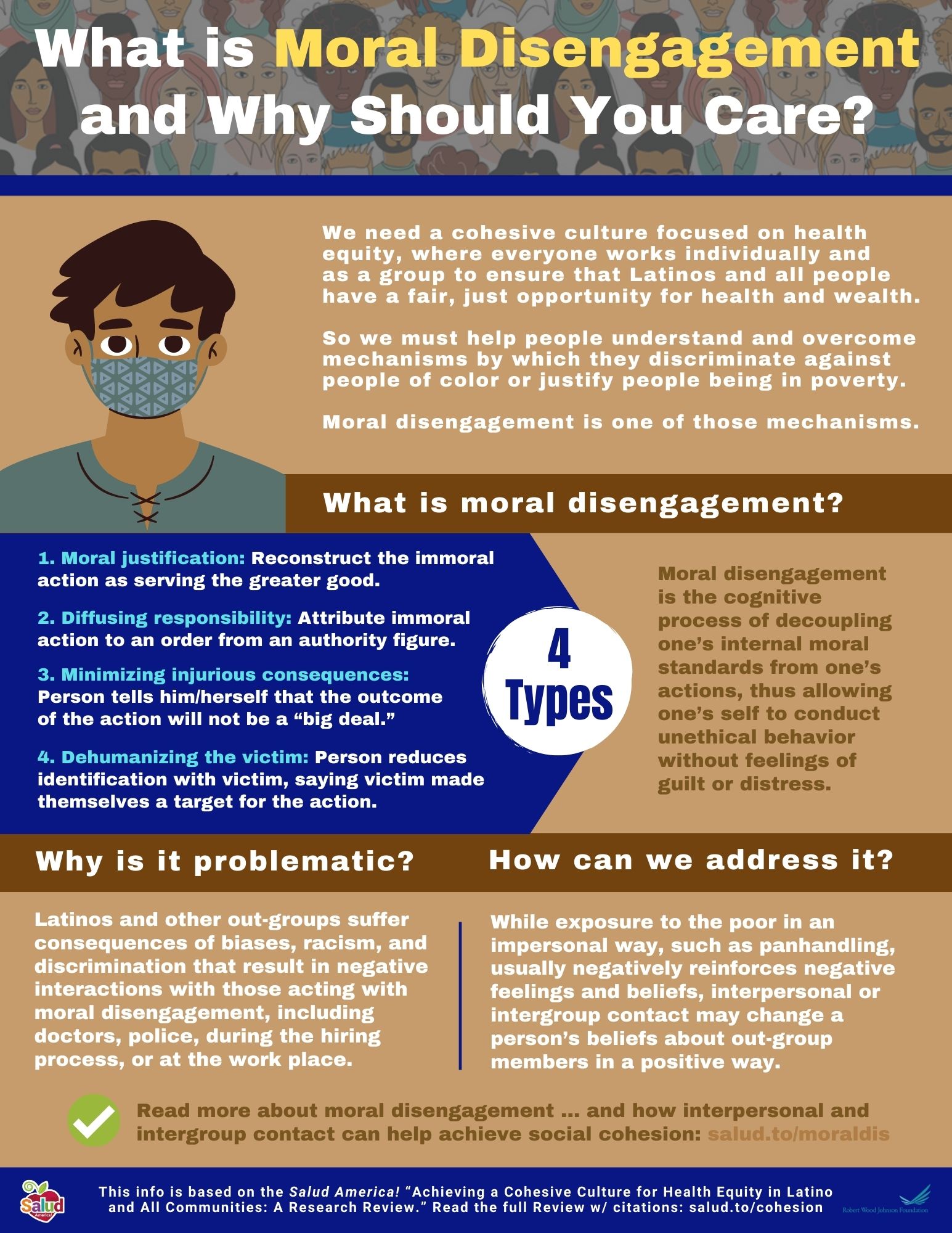
Share On Social!
Want to know how people rationalize bad decisions? It’s called moral disengagement.
Moral disengagement is the process by which an individual convinces him/herself that ethical standards do not apply to him/herself within a particular situation or context, according to world renowned social psychologist Albert Bandura.
Moral disengagement can be broken down into four categories:
1. Moral Justification
Moral justification, reconstructs immoral conduct as serving the greater good.
Example: Research shows that many policy officers, when forced to choose between lying under oath (perjury) and testifying against their colleagues, prefer the first option and justify the act as loyalty to their peers.
Another example: “This is actually the morally right thing to do; we’re actually helping them by doing this.”
Additionally, circumstances like the war/military can turn killing into a moral act.
2. Diffusing Responsibility
With diffusing responsibility, individuals deflect responsibility for a wrongdoing by attributing it to authority figures that dictate that they should engage in unethical behavior
Example: “My boss told me to do it.”
3. Mis-presenting Injurious Consequences
With minimizing consequences, self-censure is disengaged due to misrepresentation of the outcomes of one’s unruly behavior. They are distorted or ignored in a way that misconduct seems harmless.
Example: “It’s no big deal.”
4. Dehumanizing the Victim
This strategy aims to reduce identification with the target of the harmful acts. In attribution of blame, victims are blamed to have brought the harm on themselves.
Example: assuming that “if people have their privacy violated, it’s probably because they have not taken adequate precautions to protect it.”
Racism and Moral Disengagement
Moral disengagement has been studied in the context of many harmful actions, such as approval for cruelty of animals and support for the death penalty.
Yet, moral disengagement has not been thoroughly studied when it comes to racist behavior.
Sadly, Latinos face certain hidden biases and racism in the doctor’s office, police traffic stops, the hiring process, and more.
90% of racist comments in online news stories used one or more of Bandura’s moral disengagement strategies, according to a 2016 Australia research study.
“Moral disengagement strategies that allow supporters of racist acts to avoid moral sanctions play a critical role in racist supporters’ rhetoric on news website comments,” according to the researchers. “Use of these [moral disengagement] strategies was qualitatively similar across two separate incidents of racism.”
In contrast, moral disengagement strategies were found to play little to no role in the rhetoric of individuals who opposed the racist acts.
“These findings not only demonstrate that the moral disengagement approach can be fruitfully applied to the study of racism, but also suggest that techniques to counter moral disengagement discourses are needed to effectively reduce racism,” according to the researchers.
How Can We Address Moral Disengagement?
A widening socioeconomic gap, racism, and discrimination contribute to inequitable distribution of healthcare and mental and physical health disparities among Latinos and other people of color and those in poverty, especially amid COVID-19, according to a Salud America! research review.

But it doesn’t have to be this way.
A cohesive culture for health equity is one where everyone works individually and as a group to ensure that each person has a fair, just opportunity for health and wealth, as well as equitable access to basic resources required for these goals.
To achieve a more cohesive culture, we must help people understand and overcome the mechanisms─implicit bias, system justification, moral disengagement─they use to discriminate against people of color and/or justify poverty.
“Intergroup contact, peer modeling, awareness-provoking interventions, and use of targeted social media can improve social cohesion and compassion toward minority and impoverished out-groups,” according to the research review. “These actions also can counteract stereotypes, and reduce health disparities and inequities.”
Explore More:
Overcoming Harmful BiasesBy The Numbers
3
Big Excuses
people use to justify discriminatory behavior



